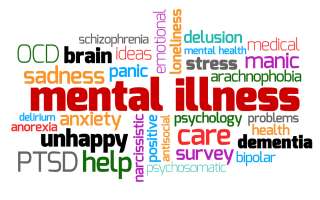Depression is something that people rarely talk about. It is recognized as the world’s leading cause of disability. However, what makes it especially hard to talk about is its stigma. Depression is not something you choose to experience; you either do or do not. If you or someone you care about is struggling with depression, it is important to understand the signs of depression in your partner.
Dealing with a romantic partner who is depressed can be difficult, but there are ways to help them. It is important to become acquainted with the physical and emotional indicators of depression, such as loss of interest in routine activities, changes in eating or sleep, or unexplained health complaints. Learning more about depression and how it affects people might help you behave with greater compassion and avoid taking your partner’s actions personally. It is critical to encourage your partner to seek treatment, such as counselling with a reputed psychologist like Dr Jeffrey McDonnell, medication, and lifestyle changes.
Dealing with depression isn’t a one-size-fits-all thing, and different treatments work differently. Keep in mind that how well a treatment works can depend on what’s causing the depression in your partner. For example, talking therapy can be good for partners dealing with a specific type of problem, while others might find other types of therapy more helpful, especially if there’s a big biological part to their depression. Sometimes, a male partner may experience depressive symptoms because of low testosterone. Hence, it could be worth checking out a trusted TRT Clinic Temecula or somewhere nearby. Getting hormone replacement treatment there might help ease the depression symptoms.
Here’s How to Recognize Depression in Your Partner:
- Abnormal Sleeping Patterns
Many people suffering from depression find it increasingly difficult to fall asleep or stay asleep.
Normal sleeping patterns vary from person to person but generally include an average number of hours of sleep per night. Sleep is an essential aspect of our daily lives, and it is linked to many bodily functions. Getting enough sleep (generally 7 to 9 hours per night) promotes optimal health and well-being. Many factors can influence a good night’s sleep, including stress, diet, environmental factors, medications, and the presence of other sleep disorders.
- Thoughts About Death and Suicide
The signs of depression in your partner are not always easy to identify. After all, your partner is your partner, and you think you know them. But your partner for you is different than your partner is for other people. It is for this reason that makes depression quite difficult to identify in your partner. But there are signs that you should look out for, including thoughts that your partner wants to die, thoughts of suicide, or changes in eating and sleeping habits. When you know what to search for can truly help you identify depression in your partner and know when to start seeking help.
- Feelings Of Hopelessness
Feelings of hopelessness can be especially difficult to recognize in your partner. While feelings of hopelessness often arise out of depression, they can also be triggered by a chronic illness or injury or as a result of a job loss. Although a variety of different things can trigger these feelings, they are often indicative of an underlying issue-in this case, depression.
- Changes In Appetite and Weight
Depression can hit anyone at any time, and it can happen to your partner as well as to you. A partner struggling with depression may act differently, including displaying different eating behaviors. They may have a big appetite or experience a lack of appetite even in their favorite food. Changes in weight often accompany depression, which may make your partner feel even worse about themselves. However, while it is important to recognize the symptoms of depression, it is even more important not to let your emotions get in the way of your ability to detect signs of depression in your partner.
- Sadness
Sadness is a normal reaction to depression and can be experienced as an overall sense of sadness or a feeling of deep sadness that persists over a prolonged period of time. While sadness is a common symptom of depression, it is not always the case. Sadness can also accompany other emotions, such as anger, frustration, or fear.
- Anxiety
If you are in a relationship or are dating someone who may be suffering from depression, you may question how to understand and recognize the signs. While depression, or “clinical depression,” is when an individual is diagnosed with experiencing 5 or more of the symptoms mentioned above for 2 weeks or longer. Symptoms of anxiety differ from those of depression. Anxiety is a heightened feeling of fear, uneasiness, or unfounded worry.
- Loss of Interest
The symptoms of depression include feeling sad and hopeless, which can lead to a lack of interest in things that usually bring joy.
- Decreased Energy
A person with depression often finds it hard to rise from bed each morning, let alone work.
- Irritability
Sadness and hopelessness often translate into irritability, and a person living with depression may be quick to snap at others.
There is no question that female partners of men who are at risk for suicide need to take extra care while dealing with the mental health of their husbands, boyfriends, fiancés, or partners. And although recognizing depression in your spouse can be a challenging task, these are some telltale signs to watch for that can help you recognize depression in your partner.




